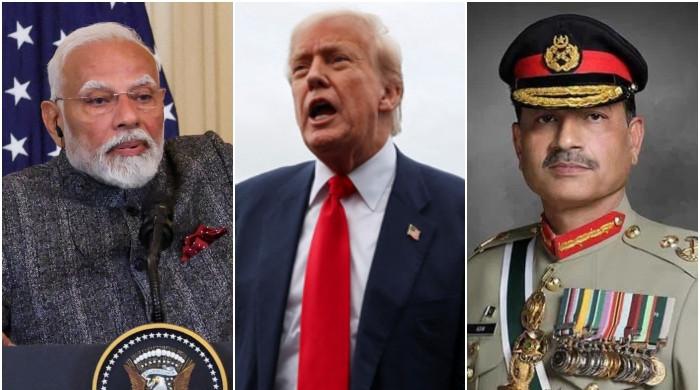Pakistan’s US Overture Rattles New Delhi
A report in the Financial Times indicates that Pakistan’s recent efforts to strengthen ties with United States President Donald Trump have caused concern in New Delhi. Field Marshal Asim Munir’s cordial interactions in Washington stand in contrast to India’s cooling relationship with the White House.
Munir’s attendance at General Michael Kurilla’s retirement ceremony in Florida marked his second friendly meeting with top-ranking American military officials this summer.
Earlier in June, Munir and Trump had a private two-hour lunch in Washington, occurring shortly after a significant military clash between Pakistan and India. The report suggests this level of engagement is uncommon for a foreign military leader, considering Trump’s previous critical remarks about Pakistan.
The report indicates that India is reportedly displeased with Munir’s welcome at the White House. The Trump administration has proposed comparatively lower trade tariffs for Islamabad (19%) compared to New Delhi (50%), and has also expressed interest in developing Pakistan’s extensive oil reserves.
This shift is attributed to Pakistan’s deliberate approach, encompassing cooperation on counterterrorism, business outreach to Trump’s associates, and agreements in sectors such as energy, key minerals, and cryptocurrency.
Pakistani authorities felt it necessary to improve relations with the US president and his allies, as some had previously supported sanctions against Munir due to the imprisonment of former prime minister Imran Khan.
Early Breakthrough
An initial success occurred when Pakistan’s intelligence services transferred an Islamic State Khorasan member accused of orchestrating a 2021 Kabul bombing. Trump acknowledged this action during his State of the Union address, where he also criticized India’s tariffs.
Crypto Diplomacy
The report also emphasized Pakistan’s use of “crypto diplomacy,” highlighting an agreement between a cryptocurrency venture supported by Trump and Pakistan’s crypto council in April. Since then, Minister for Crypto and Blockchain Bilal bin Saqib has been involved in trade discussions with Washington, promoting Pakistan’s digital asset potential to individuals connected to the US president.
Pakistani officials stated that Munir’s actions during the May conflict with India increased Islamabad’s credibility with Trump. They noted that the army chief demonstrated a balance of strength and restraint by shooting down Indian jets without further escalation, leading to a US and Gulf states-mediated ceasefire.
Husain Haqqani from the Hudson Institute commented that Trump needs success stories and Pakistan is willing to provide them.
Conversely, Indian Prime Minister Narendra Modi publicly rejected US mediation, asserting that the agreement with Pakistan was achieved through existing bilateral military channels.
Pakistan is reportedly presenting itself to Washington as a channel to Iran and China, echoing its role in US diplomacy in the 1970s. While Islamabad has criticized certain American military actions, it has also positioned itself as a mediator between the US and its adversaries.
Marvin Weinbaum from the Middle East Institute noted that Pakistan maintains relationships with various countries, including China, Iran, the Gulf states, and now the US, viewing Munir as a valuable strategic asset.
India views the strengthening Trump-Pakistan relationship with irritation, especially given its failure to prevent high tariffs despite its larger economy. Indian officials have voiced concerns over Washington seemingly rewarding a military-governed neighbor for securing swift business deals.
Analysts caution that Trump’s goodwill could be unpredictable. Pakistan’s resource wealth is largely unconfirmed, its economy relies on an IMF bailout, and recognizing Israel would present political difficulties in Islamabad.
Haqqani suggested that Trump is leveraging the “Pakistan card” to gain influence over India. Former prime minister Shahid Khaqan Abbasi cautioned that while the outreach has produced short-term benefits, Islamabad must safeguard its interests and dignity in the volatile relationship.



Comments (0)
No comments yet. Be the first to comment!
Leave a Comment